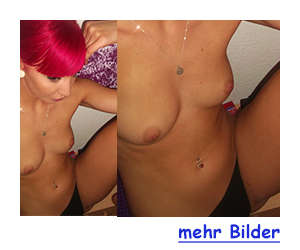


Dating after a divorce can be a daunting experience. It’s a journey that requires self-reflection, healing, and the willingness to open your heart to love once again. This guide aims to provide you with valuable insights and practical advice on how to navigate the dating world after going through a divorce and find love again.
After a divorce, it’s important to rebuild your self-confidence. Take the time to focus on self-care, engage in activities that bring you joy, and surround yourself with a supportive network of friends and family. By investing in yourself and your well-being, you’ll regain the confidence needed to step back into the dating scene.
Setting realistic expectations is crucial when embarking on a new romantic journey. Reflect on the lessons learned from your previous marriage and use them as a guide for future relationships. Be clear about what you want and need in a partner, and don’t settle for anything less. By knowing your worth and setting boundaries, you’ll be better equipped to find a healthy and fulfilling relationship.
Rebuilding Self-Confidence
Rebuilding self-confidence after a divorce can be a challenging journey, but it is crucial for finding love again. Here are some tips and advice to help you regain your self-confidence and overcome insecurities when entering the dating scene:
- Focus on self-care: Prioritize self-care and take time to nurture yourself emotionally, physically, and mentally. This can include engaging in activities you enjoy, practicing self-compassion, and surrounding yourself with a supportive network.
- Challenge negative thoughts: Identify and challenge any negative beliefs or thoughts that may be holding you back. Replace them with positive affirmations and focus on your strengths and qualities.
- Set realistic expectations: Understand that dating after a divorce may be different from your previous experiences. Set realistic expectations for yourself and potential partners, allowing room for growth and learning.
- Take it slow: Don’t rush into a new relationship. Take the time to heal and rediscover yourself. Enjoy the process of getting to know new people and build connections gradually.
- Seek professional support: Consider seeking the guidance of a therapist or counselor who specializes in divorce and relationships. They can provide valuable insights and support as you navigate the dating world.
Remember, rebuilding self-confidence takes time, patience, and self-compassion. Be kind to yourself throughout this journey and trust that you have the strength to find love again.
Setting Realistic Expectations
When entering the dating world after a divorce, it is crucial to set realistic expectations for yourself and your future relationships. After going through a divorce, it’s natural to have certain fears, insecurities, and doubts about finding love again. However, it’s important to remember that every relationship is unique, and you have the power to define what you want and need in a new partner.
Take the time to reflect on your past relationship and identify the qualities and values that are important to you. Consider what worked and what didn’t work in your previous marriage, and use those insights to guide your expectations for future relationships. It’s essential to be honest with yourself about your needs, desires, and deal-breakers.
Creating a list of non-negotiable qualities can be helpful in setting realistic expectations. This list can serve as a guide when evaluating potential partners and can help you avoid repeating past relationship mistakes. Remember, finding love again is a journey, and it’s important to be patient with yourself and the process. By setting realistic expectations, you increase your chances of finding a fulfilling and healthy relationship after divorce.
Learning from Past Mistakes
Learning from past mistakes is an essential part of moving forward after a divorce. It provides an opportunity for self-reflection and growth, allowing individuals to make better choices in future relationships. By understanding the lessons learned from a previous marriage, one can use them as a guide to create healthier and more fulfilling connections.
Reflecting on the past can be challenging, but it is crucial to identify patterns, behaviors, and dynamics that contributed to the end of the marriage. This self-awareness helps in avoiding similar pitfalls in future relationships. It may involve examining communication styles, conflict resolution strategies, or personal boundaries that need improvement.
Creating a list of lessons learned can be a helpful exercise. This list can serve as a reminder of what to avoid or what to prioritize in future relationships. It can also provide clarity on personal values and non-negotiables. By understanding the past, individuals can make more informed decisions and actively work towards building healthier and more successful relationships in the future.
Identifying Red Flags
Recognizing warning signs and red flags in potential partners is crucial when navigating the dating world after a divorce. By being aware of these indicators, you can avoid repeating past relationship mistakes and ensure a healthier and more fulfilling future.
Here are some key red flags to watch out for:
- Consistently disrespectful behavior towards you or others
- Lack of accountability for their actions
- Excessive jealousy or possessiveness
- Attempts to isolate you from friends and family
- Unwillingness to communicate or listen to your needs
- Frequent mood swings or unpredictable behavior
It’s important to trust your instincts and not dismiss any concerns you may have. Remember, a healthy relationship is built on mutual respect, trust, and open communication. Take the time to observe and evaluate potential partners, and don’t settle for anything less than what you deserve.
Embracing Vulnerability
Embracing vulnerability is a crucial step in finding love again after a divorce. It requires being open to new experiences and connections, even if it means taking risks and stepping out of your comfort zone. By embracing vulnerability, you allow yourself to fully engage in the dating world and create meaningful connections with others.
When you open yourself up to vulnerability, you show your authentic self to potential partners. This honesty and openness can foster deeper connections and attract individuals who appreciate and value you for who you truly are. It also allows you to let go of any past fears or insecurities that may have held you back in previous relationships.
Embracing vulnerability means being willing to take chances and put yourself out there. It may involve going on dates with people you wouldn’t typically consider or trying new activities that push you outside of your comfort zone. By doing so, you expand your horizons and increase your chances of finding love again.
Defining Relationship Goals
When starting to date after a divorce, it is essential to take the time to define and communicate your relationship goals and aspirations. This process will help you gain clarity about what you truly desire in a new partner and what you want to achieve in your future relationships.
To define your relationship goals, start by reflecting on your past experiences and identifying what worked and what didn’t. Consider the qualities and values that are important to you in a partner and the type of relationship you envision. Are you looking for companionship, romance, or a long-term commitment? Take the time to understand your own needs and desires.
Once you have a clear understanding of your relationship goals, it is important to communicate them effectively. Be open and honest with potential partners about your intentions and what you are looking for in a relationship. This will help you attract individuals who are on the same page and avoid wasting time on incompatible matches.
Remember, defining and communicating your relationship goals is a crucial step in finding love again after a divorce. It sets the foundation for a healthy and fulfilling relationship based on mutual understanding and shared aspirations.
Taking Time for Self-Care
Taking time for self-care is crucial during the post-divorce dating journey. It is a period of transition and self-discovery, and prioritizing self-care can help individuals navigate this process with greater ease and confidence.
Self-care involves taking intentional steps to nurture and nourish oneself physically, emotionally, and mentally. It is about recognizing and meeting your own needs, and making self-care a non-negotiable part of your routine.
During this time, it is important to engage in activities that bring you joy and promote personal growth. This can include practicing mindfulness and meditation, engaging in regular exercise, pursuing hobbies and interests, and spending quality time with loved ones.
Self-care also involves setting boundaries and saying no to things that drain your energy or do not align with your values and priorities. By prioritizing self-care, you are sending a message to yourself and others that your well-being is important and deserving of attention.
Remember, taking time for self-care is not selfish, but rather an essential component of building a strong foundation for future relationships. By investing in yourself and your own growth, you are better equipped to attract and maintain a healthy and fulfilling partnership.
Healing and Moving On
Healing and moving on after a divorce can be a challenging and emotional process. It is important to prioritize self-care and take the necessary steps to heal from the emotional wounds of the past. One way to do this is by seeking therapy or counseling to address any unresolved feelings and gain valuable insights into the divorce experience.
Another helpful approach is to surround yourself with a supportive network of friends and family who can provide love, encouragement, and understanding during this difficult time. Engaging in activities that bring you joy and fulfillment can also aid in the healing process. Whether it’s taking up a new hobby, practicing mindfulness and meditation, or pursuing personal goals, focusing on self-improvement can help you move forward in a positive way.
It’s important to remember that healing takes time and everyone’s journey is unique. Be patient with yourself and allow yourself to grieve and process the emotions associated with the end of your marriage. By embracing self-care, seeking support, and engaging in activities that bring you happiness, you can heal and move on from your divorce in a healthy and positive way.
Finding Joy in Singleness
After going through a divorce, it’s important to take the time to rediscover yourself and find joy in being single before jumping into a new relationship. Embracing the benefits of being single can be a transformative experience that allows you to grow as an individual and build a strong foundation for future relationships.
Being single provides an opportunity for self-reflection and personal growth. It’s a time to focus on your own needs, desires, and aspirations without the distractions of a romantic partnership. Use this time to explore your passions, hobbies, and interests. Take up new activities, travel, or pursue further education. This is your chance to invest in yourself and create a fulfilling life that brings you happiness and contentment.
By finding joy in singleness, you become more self-aware and confident. You learn to rely on yourself for happiness and fulfillment instead of depending on someone else. This independence is incredibly empowering and sets the stage for healthier future relationships. When you are content with yourself, you attract others who are also secure and confident.
Remember, finding joy in singleness doesn’t mean closing yourself off to the possibility of a new relationship. It simply means prioritizing your own happiness and well-being before seeking a new partner. By embracing the benefits of being single and finding happiness within yourself, you will be better equipped to enter into a new relationship from a place of strength and self-assurance.
Frequently Asked Questions
- Q: How long should I wait before dating again after a divorce?
A: There is no set timeframe for when you should start dating again after a divorce. It’s important to give yourself enough time to heal and process your emotions. Take the time to focus on self-care and personal growth before jumping back into the dating scene.
- Q: How can I rebuild my self-confidence after a divorce?
A: Rebuilding self-confidence after a divorce can take time, but it’s possible. Start by practicing self-care, engaging in activities that make you feel good about yourself, and surrounding yourself with supportive friends and family. Consider seeking therapy or counseling to help you work through any lingering insecurities.
- Q: How do I set realistic expectations when dating after a divorce?
A: Setting realistic expectations is crucial when entering the dating world after a divorce. Reflect on your past relationship and identify what worked and what didn’t. Understand your own needs and desires in a new relationship and communicate them openly with potential partners. Remember that finding love again takes time and patience.
- Q: How can I learn from my past mistakes in relationships?
A: Learning from past mistakes is an important part of personal growth. Take time to reflect on your previous marriage and identify any patterns or behaviors that contributed to its downfall. Use these lessons as a guide for future relationships and strive to make positive changes in your own behavior.
- Q: What are some red flags to watch out for when dating after a divorce?
A: It’s important to be aware of red flags when entering new relationships. Watch out for signs of dishonesty, lack of respect, or controlling behavior. Trust your instincts and don’t ignore any gut feelings that something might be off. Remember that you deserve a healthy and fulfilling relationship.
- Q: How can I embrace vulnerability when dating again?
A: Embracing vulnerability is essential for forming deep connections with others. Allow yourself to be open and honest about your feelings and experiences. Be willing to take risks and step outside of your comfort zone. Remember that vulnerability is a strength, not a weakness.
- Q: How do I define my relationship goals when starting to date after a divorce?
A: Take time to reflect on what you want in a new relationship. Consider your values, priorities, and long-term goals. Communicate these goals clearly with potential partners to ensure you are on the same page. Be open to revisiting and adjusting your goals as you navigate the dating process.
- Q: Why is self-care important during the post-divorce dating journey?
A: Self-care is crucial during the post-divorce dating journey as it allows you to prioritize your own well-being. Focus on activities that bring you joy and help you feel grounded. Take time to heal from the emotional wounds of divorce and nurture your own growth and happiness.
- Q: How can I find joy in being single before seeking a new relationship?
A: Being single offers a unique opportunity for self-discovery and personal growth. Embrace this time to focus on yourself, explore new hobbies, and build a strong sense of independence. Find joy in your own company and learn to love and appreciate yourself before seeking a new relationship.
- Q: What are some ways to heal and move on from a divorce?
A: Healing and moving on from a divorce is a process that takes time and self-compassion. Seek support from friends, family, or a therapist to help you navigate your emotions. Engage in activities that promote healing, such as journaling, practicing mindfulness, or participating in support groups.
